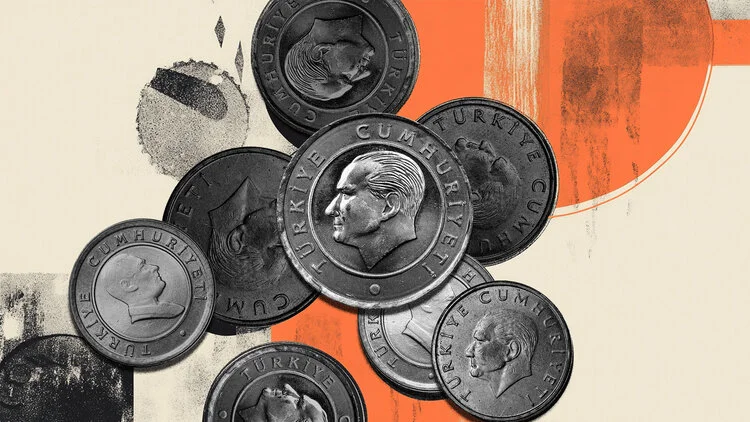Key Takeaways
- Market analysts now anticipate Turkey’s inflation to reach 31.8% by the end of 2025, exceeding the Central Bank of Turkey’s (CBT) official forecast.
- This upward revision reflects a growing concern over persistent inflationary pressures, partly fueled by the Turkish lira’s depreciation.
- Despite rising inflation, market sentiment suggests the CBT may continue its interest rate reduction cycle, exploring alternative policy tools if necessary.
Inflation Expectations Surge Beyond Official Forecasts
The Central Bank of Turkey’s (CBT) latest monthly survey reveals a more pessimistic inflation outlook, with market participants projecting a 31.8% inflation rate by the end of 2025. This projection marks an increase from the previous month’s survey, where expectations stood at 29.9%, and notably surpasses the CBT’s own forecast ceiling of 29.0%. Minister Mehmet Simsek, speaking from the US, echoed a similar sentiment, indicating his expectation for year-end inflation to hover around 30%.
Turkish policymakers have frequently cited transient factors, such as frost affecting food prices, to explain inflation. However, this persistent pattern of upward forecast revisions as targets approach raises questions about the effectiveness of current economic strategies. While medium-term projections often anticipate a gradual descent towards targets, the underlying framework for achieving these goals sometimes appears lacking. A critical question remains whether past policy missteps are being thoroughly analyzed and addressed through necessary recalibrations, a step that often seems absent.
Shifting Expectations and Monetary Policy Concerns
The recent survey data also indicates an increasing trend in longer-term inflation expectations. The forecast for inflation 12 months ahead has climbed to 23.3%, and the 24-month outlook now stands at 17.4%. This data reflects a familiar pattern where future inflation is projected to be inherently lower, yet as each timeframe draws closer, these estimates tend to incrementally rise.
💡 Despite these mounting inflationary pressures, the survey suggests market participants still expect the CBT to continue lowering interest rates, with projections indicating cuts to 39.0% this week and 37.7% by December. This expectation highlights a potential disconnect between inflation realities and monetary policy direction.
⚡ The ongoing depreciation of the Turkish lira, which has been losing value at an annualized rate of 40% against a US dollar and Euro basket, significantly exacerbates inflationary pressures. The CBT’s inclination to cut interest rates appears driven by a perceived lack of policy alternatives, potentially influenced by anticipation of President Tayyip Erdogan’s diminishing patience with sustained high interest rates. Consequently, the CBT may resort to secondary policy tools if inflation accelerates further. This approach suggests that the fundamental drivers of the lira’s exchange rate may not be improving, potentially leading to increased currency volatility.
Expert Summary
Recent data from the Central Bank of Turkey indicates market participants now foresee inflation exceeding official forecasts for late 2025. This trend, combined with the Turkish lira’s consistent depreciation and anticipated interest rate cuts, raises significant concerns about the efficacy and stability of current economic policies. The situation suggests a continued risk of currency volatility and persistent inflationary pressures.

